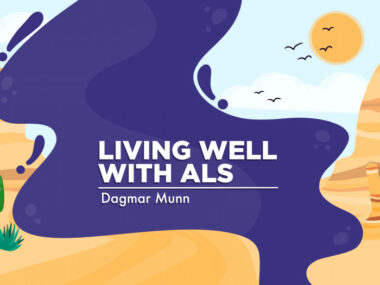7 new grants from nonprofits all focus on faster ALS diagnosis
ALS Association, ALSFAC to award nearly $2M for new projects
Written by |

Some $2 million in new grants from two U.S. nonprofits are seeking to help scientists globally to find ways to slash the time it takes for an amyotrophic lateral sclerosis (ALS) diagnosis.
It’s now estimated to take up to 16 months from symptom onset before most individuals receive a diagnosis of ALS — too long, according to the ALS Association and ALS Finding a Cure, also known as ALSFAC.
To shorten that timeframe, the two organizations have collaborated on seven new grants, awarded to researchers worldwide following the ALSFAC’s Early ALS Diagnostics Initiative.
That initiative initially was launched by ALSFAC in the U.S. to find promising digital, molecular, imaging, and electrophysiological diagnostic approaches in ALS. A subsequent partnership grant from the ALS Association earlier this year has now enabled an expansion of the number of projects to be funded and extended the initiative’s reach internationally.
“The longer it takes for someone to be diagnosed, the longer they are waiting to access the multidisciplinary care, treatments and trials that may help them live longer or with a better quality of life,” Kuldip Dave, PhD, the ALS Association’s senior vice president of research, said in a press release.
Goal is to shorten time to diagnosis, now at 10-16 months
More than 150 years after ALS was first defined, there remains no definitive, universally accepted process for diagnosing the neurodegenerative disorder. This is largely because ALS shares common signs and symptoms with other conditions.
A diagnosis confirmation instead is largely dependent on an observation period to track symptom progression, combined with a series of clinical tests. As such, a diagnosis often can take more than a year. Indeed, it is estimated that patients generally wait about 10-16 months from their first symptoms to receive an ALS diagnosis.
“That’s why this partnership with ALS Finding a Cure to support the development of new diagnostic approaches is so important,” Dave said, adding, “By combining our dollars, we can have a larger impact — funding more projects from researchers all around the world.”
While on their diagnostic journey, individuals ultimately determined to have ALS often receive unnecessary and expensive surgical procedures and medications. Patients also can become ineligible for clinical trials, which usually enroll people in the first years after symptom onset.
Diagnostic delays also can affect family planning and prevent early administration of ALS treatments that can help with disease management.
Now is a time of unprecedented promise for the field of ALS research and drug development. … This collaboration between foundations has made possible the support needed to shorten the time to diagnosis.
From developing new diagnostic blood tests to identifying possible biomarkers, the selected grant recipients are working on ways to quicken the time to ALS diagnosis, according to the two nonprofits.
The awardees hail from the U.S. and Europe, and come from academia, healthcare, and industry:
- Erez Eitan, PhD, the co-founder and chief scientific officer at NeuroDex, with offices in the U.S. and Israel, is working to develop a blood test that measures the activity of genes controlled by the protein TDP-43. This protein forms abnormal clumps in the brain and spinal cord in about 97% of all ALS patients. As such, measuring the genes it controls could potentially be used to diagnose ALS early in the disease.
- Mark Garret, MD, a neurologist at Massachusetts General Hospital and Harvard Medical School, aims to develop a decentralized and open innovation platform that will enable remote assessments of limb activity, speech, cognition, and behavior. Such assessments would be done in individuals at higher risk of developing ALS.
- Roisin McMackin, PhD, a neuroscientist at Trinity College, in Dublin, Ireland, is seeking to find nerve function markers that help predict ALS in people carrying C9orf72 mutations — the most common genetic cause of ALS. These markers would be used in patients who have such mutations but no ALS symptoms and may help predict disease development.
- Patrick Oeckl, PhD, from the Ulm University Hospital, in Germany, aims to study spinal fluid samples from asymptomatic individuals with ALS-linked genetic mutations. The goal of Oeckl’s research is to identify small protein fragments associated with early-stage ALS that could be used as the basis for a new diagnostic test.
- Ghazaleh Sadri-Vakili, PhD, a professor of neurology at Massachusetts General Hospital and Harvard Medical School, is hoping to identify specific gene fusions that can be measured in the blood and spinal fluid and may serve as biomarkers of early ALS. The project specifically targets so-called breakpoint gene fusions.
- Ian Thrippleton, PhD, chief technical officer at NemDx, in Massachusetts, aims to develop a comprehensive blood test that will assess TDP-43 activity, in addition to several other biomarkers associated with familial and sporadic ALS. His aim is to determine whether a combination of these biomarkers can help divide ALS patients into patient subgroups.
- Philip C. Wong, PhD, a professor of pathology and neuroscience at Johns Hopkins University, in Maryland, will use the funding to develop a test that measures an abnormal protein that is produced when TDP-43 is not working normally.
“Now is a time of unprecedented promise for the field of ALS research and drug development,” said Merit Cudkowicz, MD, chief medical officer of ALS Finding a Cure.
“This collaboration between foundations has made possible the support needed to shorten the time to diagnosis. This has been a long-time interest for ALSFAC, and we look forward to advancing a solution towards this key need for the field,” added Cudkowicz, who also is chief of neurology at Mass General Hospital and the Julieanne Dorn professor of neurology at Harvard Medical School.
The ALS Association funds ALS research globally and supports patients and their families through advocacy and its nationwide clinical care network. ALS Finding a Cure, founded in 2014, seeks to identify scientific gaps in ALS understanding that impede cure discovery.






